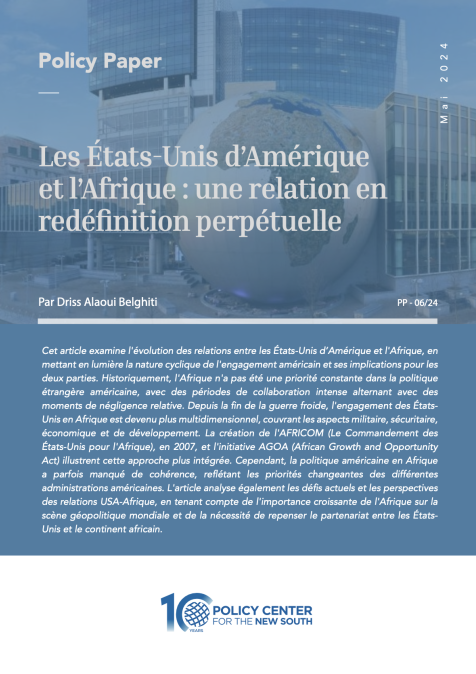Publications /
Policy Paper
Cet article examine l'évolution des relations entre les États-Unis d’Amérique et l'Afrique, en mettant en lumière la nature cyclique de l'engagement américain et ses implications pour les deux parties. Historiquement, l'Afrique n'a pas été une priorité constante dans la politique étrangère américaine, avec des périodes de collaboration intense alternant avec des moments de négligence relative. Depuis la fin de la guerre froide, l'engagement des États- Unis en Afrique est devenu plus multidimensionnel, couvrant les aspects militaire, sécuritaire, économique et de développement. La création de l'AFRICOM (Le Commandement des États-Unis pour l'Afrique), en 2007, et l'initiative AGOA (African Growth and Opportunity Act) illustrent cette approche plus intégrée. Cependant, la politique américaine en Afrique a parfois manqué de cohérence, reflétant les priorités changeantes des différentes administrations américaines. L'article analyse également les défis actuels et les perspectives des relations USA-Afrique, en tenant compte de l'importance croissante de l'Afrique sur la scène géopolitique mondiale et de la nécessité de repenser le partenariat entre les États- Unis et le continent africain.







